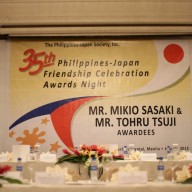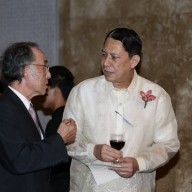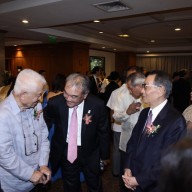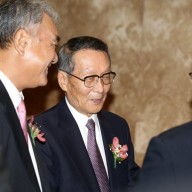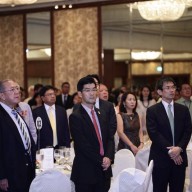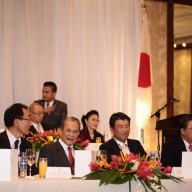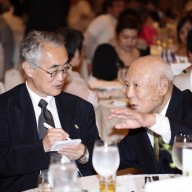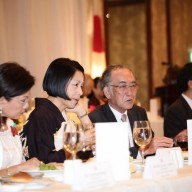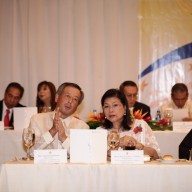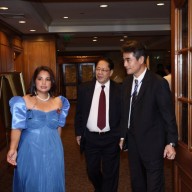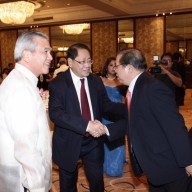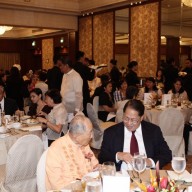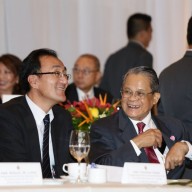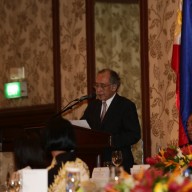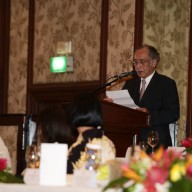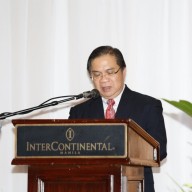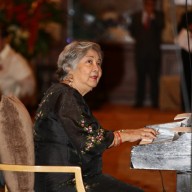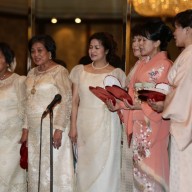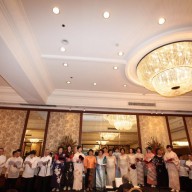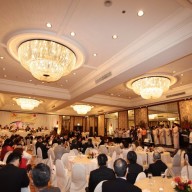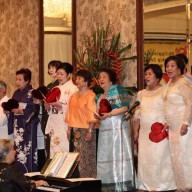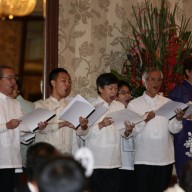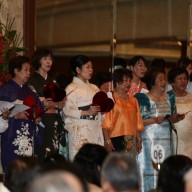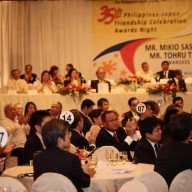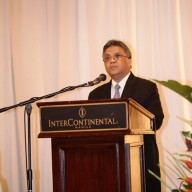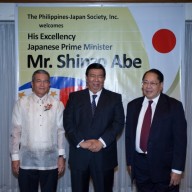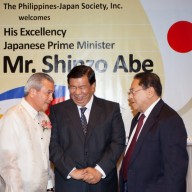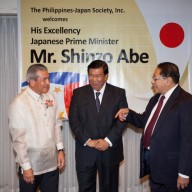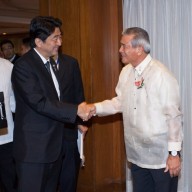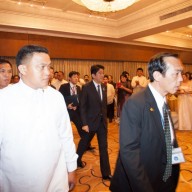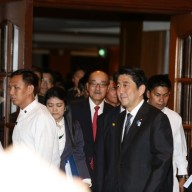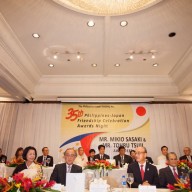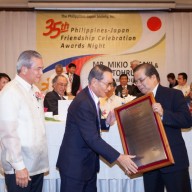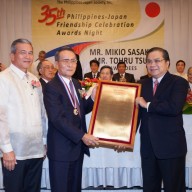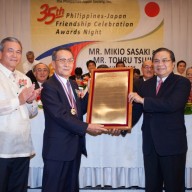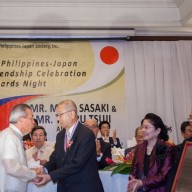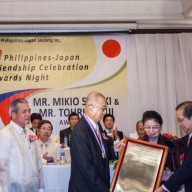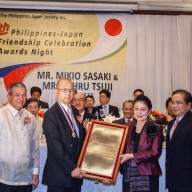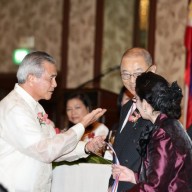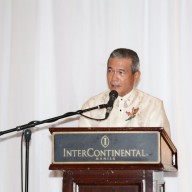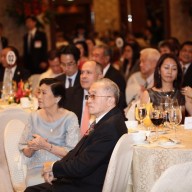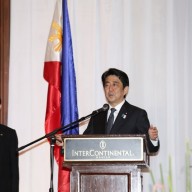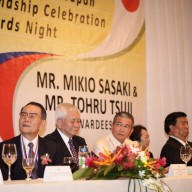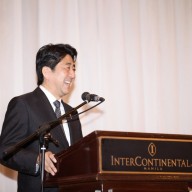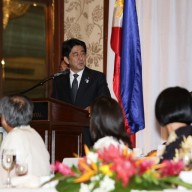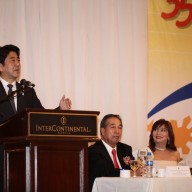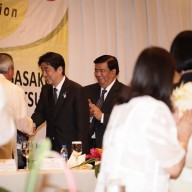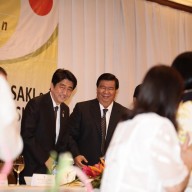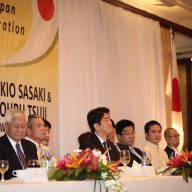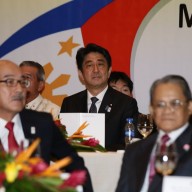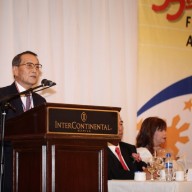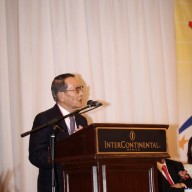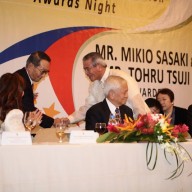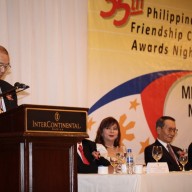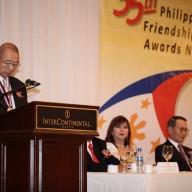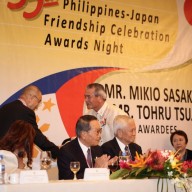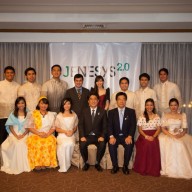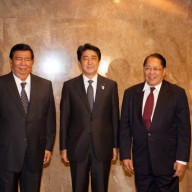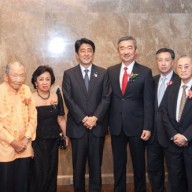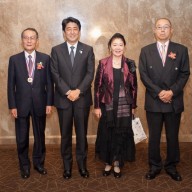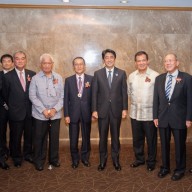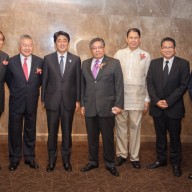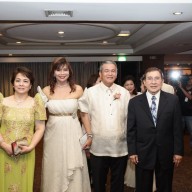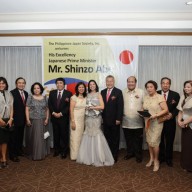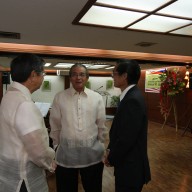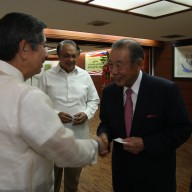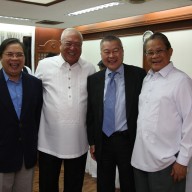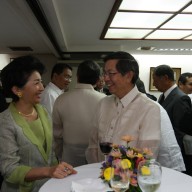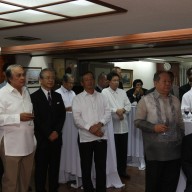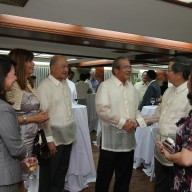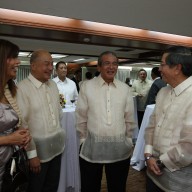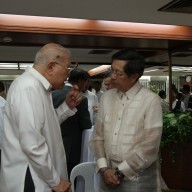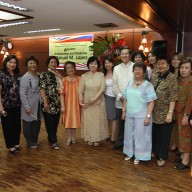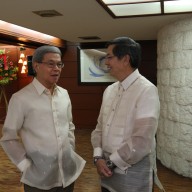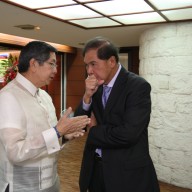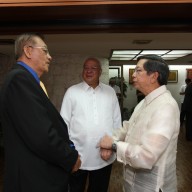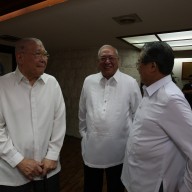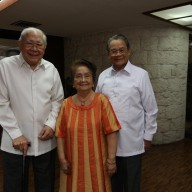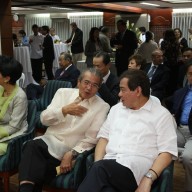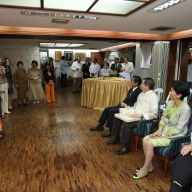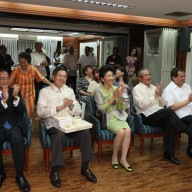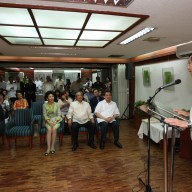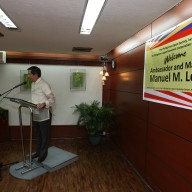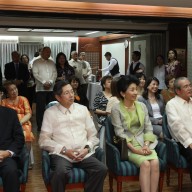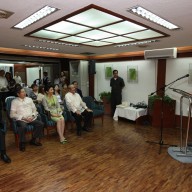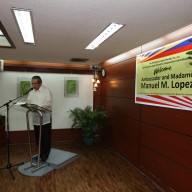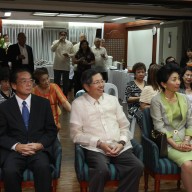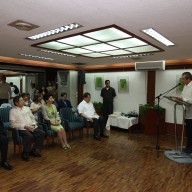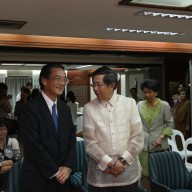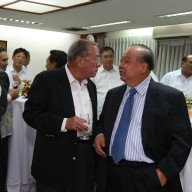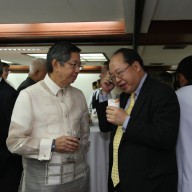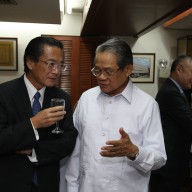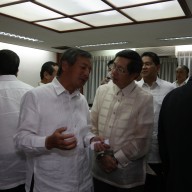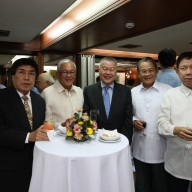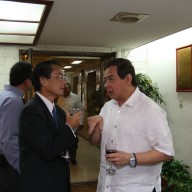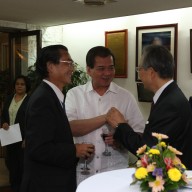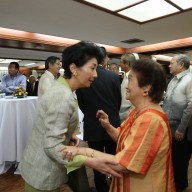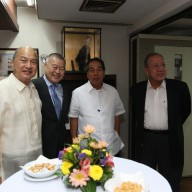Download (PDF, 2.77MB)
Translated by Prof. Kenjiro Ogata, Academic Adviser of Philippine Institute of Japanese Language & Culture and the Nihongo Center Foundation
The following is an edited excerpt of the interview conducted by FN Holding’s facsimile financial newspaper with the late Mr. Benjamin C. Laurel, the then Chairman of the Asian Council of Japan Alumni (ASCOJA). The interview was conducted in 2012 right after the Japanese Government of the then ruling party Minshu Tou 民主党decided to abolish Asia Japan Alumni (ASJA) International, ASCOJA’s counterpart organization in Japan.
__________________________________________________________________________________________________________________
FN: Mr. Laurel, what do you think of the recent decision by the Japanese Government to abolish the ASJA?
Laurel: I feel deeply sorry about that decision, and wish for the continuation of the ASJA. One of the purposes of the ASJA scholarship program is to increase the number of “ambassadors of goodwill.” I was hoping that this program would continue to promote better understanding between Japan and ASEAN countries. It is very important that Japan and the ASEAN countries maintain peace in the region when the world is full of problems.
ASJA scholars are all screened very carefully and qualified to become ambassadors of goodwill. They go to Japan not only to study business techniques or manufacturing methods but also to gain a better understanding of Japan and Japanese people. They go to Japan not for money but for mutual understanding between Japan and their respective countries. This kind of human exchange is a good example of the heart-to-heart relations in the Fukuda doctrine advocated by the late Japanese Prime Minister Takeo Fukuda. I believe that Japan and the ASEAN countries should not focus only on business and money. We should promote mutual understanding, mutual respect, and cooperation.
At this juncture allow me to explain the history of the ASCOJA and the ASJA. The ASCOJA was established by those Japan alumni who were invited to the gathering ‘tsudoi’ initiated by the late Prime Minister Takeo Fukuda. They were those who had been invited to Japan by the Japanese Government during the Second World War as “Nanpo Tokubetsu Ryugakusei (special scholars from the south). My father was one of those who were supportive of them, and he founded the Philippine Federation of Japan Alumni (PHILFEJA) in 1976. And by making use of the connections among the Japan alumni of the ASEAN countries, he established a regional organization named the ASEAN Counsel of Japan Alumni (ASCOJA) in 1977.
After the establishment of the ASCOJA anti-Japan demonstrations in the ASEAN region decreased. Those demonstrations took place due to negative memories of the war among other things. We at ASCOJA exerted our utmost efforts to overcome the anti-Japan feelings by promoting mutual understanding and harmony between Japan and each of the member countries. The ASJA is the Japanese counterpart to the ASCOJA with this meaningful history. We regret that the Japanese Government thinks the ASJA is no longer necessary and has decided to abolish it.
My father and his colleagues established the ASCOJA by themselves without any government assistance. They sympathized with Prime Minister Fukuda’s philosophy and took the initiative. My father’s generation has already passed the torch to the second and third generations. And the transitions have been very smooth. The ideals of the first generation have been passed on to my generation and the next one, and I would like to see the continuation of this good trend in the future generations.
On my previous visit to Japan I brought with me four Philippine government officials whose purpose was to increase Japanese investment in the Philippines. On the other hand, Japanese businessmen have started to contact Japan alumni in addition to local businessmen in such ASEAN countries as Vietnam and Thailand. We Japan alumni can explain our culture to Japanese people and Japanese culture to our countrymen. I believe that the ASJA could and should continue to play a very important role in promoting friendship and strengthening ties between Japanese and ASEAN peoples.



